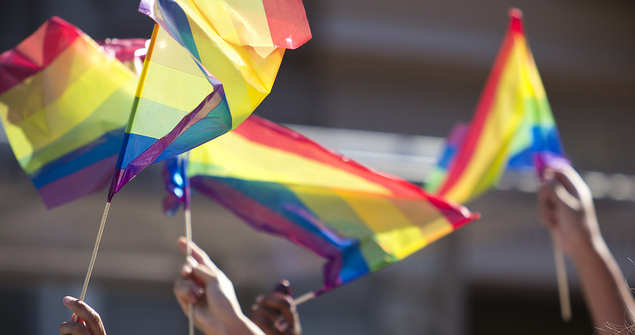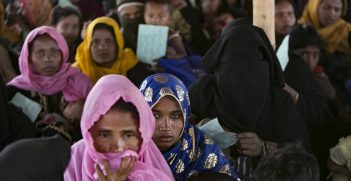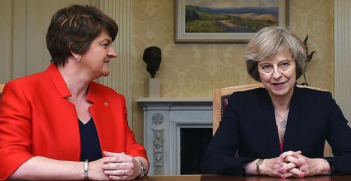Is Freedom Under Pressure Globally?

Despite the efforts of governments, the future belongs to freedom.
Behind human rights is the still revolutionary idea that every human being is free and equal, that individuals own their own bodies and should be free to pursue their lives, opportunities and enterprise. Human rights provide the foundation for our liberal democracy, our market economy and our civil society.
It was the signing 800 years ago of the Magna Carta, or Great Charter of 1215, by King John that formally established equality before the law, protected religious freedom and property rights and, in a later edition that sits in our very own Federal Parliament, established the rule of law. Liberal enlightenment thinking then universalised these values and asserted the importance of free speech and religious tolerance. The 1948 Universal Declaration of Human Rights took these principles from Western liberal democracies and globalised them. Yet the international story of human rights and freedom today is mixed.
The Internet has liberated billions of people’s voices and corroded the filters to public expression. But it is both easier to circulate absurd thoughts and ideas and to ensure that they are scrutinised and challenged. Importantly it has given a platform for voices often unheard to broadcast their views and be tested properly in the marketplace of ideas. The Internet is a reflection of humanity’s greatest achievements, but also includes the sewer of our deepest darkest thoughts.
Experience demonstrates that efforts to censor the Internet are fruitless. Technology moves faster than any government keeps apace. Countries such as Vietnam and China have created censorship regimes for the Internet, but the development of proxy servers and peer-to-peer technologies have bypassed these walls.
Technology has aided social movements that have liberated women and minorities from marginalisation toward greater legal and cultural equality. Yet reducing the marginalisation of women and minorities is not occurring everywhere.
Free markets built on property rights have driven economic progress, which has reduced poverty and its curses. Declining infant mortality rates mean children grow up to be adults and actually live their lives. Concurrently life expectancy continues to be extended globally, with the biggest gains being experienced in the world’s poorest countries. While seemingly disturbing, the rise of non-communicable diseases is linked to longer, more prosperous lives. Economic prosperity ensures individuals can travel, as well as increase their material wellbeing.
Collective efforts to not hike trade barriers after the global financial crisis have ensured that many of these gains have not been lost. Unlike after the Great Depression, a study by the OECD found that “protectionism was not a major factor” in the decline of international trade after the economic crisis. By keeping trade flows open, markets have remained fluid and contributed to economic recovery.
But it is not all good news. The atrocities inflicted on civilians by Daesh (Islamic State), from the murder of children for watching soccer to pushing men off tall builds for homosexuality, should give pause for thought. There is no moral relativism necessary for these crimes. Some people argue one person’s terrorist is another’s freedom fighter. If the reason you are fighting is to simply impose your version of tyranny you are tyrant. A freedom fighter only seeks to liberate others. In Martin Place and Paris we’ve now seen the consequences of the movements Daesh can inspire.
Western liberal democracies face tough choices. We can seek to preserve individual liberties or go down the path of limiting them in the name of security. National security and its interaction with technology were already being reviewed through schemes like data retention. These events are prompting an even greater focus in the face of more immediate threats. It comes with a complementary danger that we overreach.
But the biggest international frontier for human rights is ensuring the legal, social and cultural tolerance of lesbian, gay, bisexual, transgender and intersex people. It seems absurd that in the 21st century it is aspirational that this section of community aspires to be free of violence and discrimination simply because of who they are. Laws in countries like Uganda, Nigeria and Russia deliberately target and discriminate against people. Recently the Human Rights Commission produced a resource designed to help people in these countries to explain why discrimination and violence were never justified.
Recently The Economist magazine outlined the challenge in its cover story, The Gay Divide. The newspaper outlined that laws and societal attitudes to LGBTI people are improving, particularly in the West; but heading in the reverse direction, particularly the Middle East and Africa, where homosexuality is being recriminalised and discrimination is becoming commonplace.
These abuses against individual freedom are set amongst a backdrop of absent international leadership. Nor is there any international organisational architecture to deal with these issues, such as programs targeting violence against women and girls. Sexual orientation and gender identity issues often strongly cut across cultural and religious norms. It’s for this reason that even many ordinarily activist foreign aid groups are relatively mute. Arguably, efforts by the West to stand up can have the reverse effect as local leaders use them to reinforce perceptions of cultural colonialism.
Until everyone can expect to live in a world free of violence and discrimination, freedom will be under pressure.
Tim Wilson is Australia’s Human Rights Commissioner. This article can be republished with attribution under a Creative Commons Licence. This is a summary of a speech to the Australian Institute of International Affairs (Victoria) by Tim Wilson.





